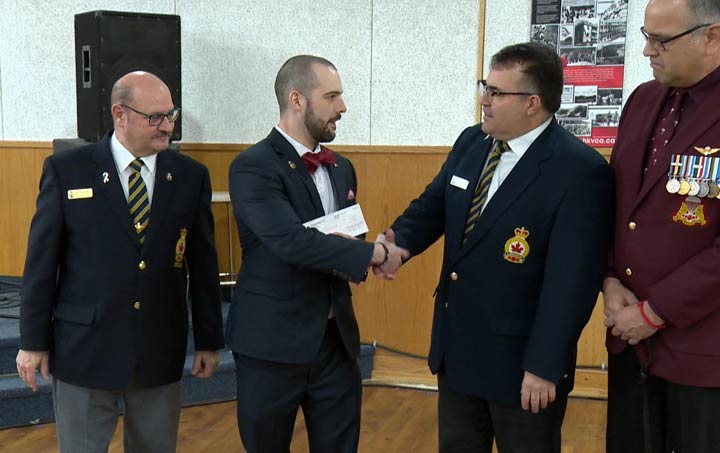The Royal Canadian Legion’s Saskatchewan Command has awarded a bursary for research on mefloquine and its reported link to psychiatric conditions.

The drug was issued by the Canadian military to soldiers to protect them from malaria while on deployment.
Some studies have suggested it to have psychological side-effects similar to post-traumatic stress disorder (PTSD).

Get weekly health news
University of Saskatchewan researcher Jacob Cohen, who served as a medic in the Israeli Armed Forces, will continue to conduct his research on mefloquine and the use of cannabis to treat PTSD.
“The main focus was veterans and then EMS because that’s the main populous really but we want to apply it to everyone including civilians,” bursary recipient Jacob Cohen said in Saskatoon Friday.
“And then the same thing with mefloquine because not only soldiers get it. Anyone who goes aboard to countries were malarial is an issue gets this drug, including aid workers, relief workers so it’s a problem for everybody not just the military.”
Cohen said, if melfoquine is the best option to prevent malaria, he hopes to determine the maximum dosage that can be given to someone safely before negative side-effects occur.

Comments